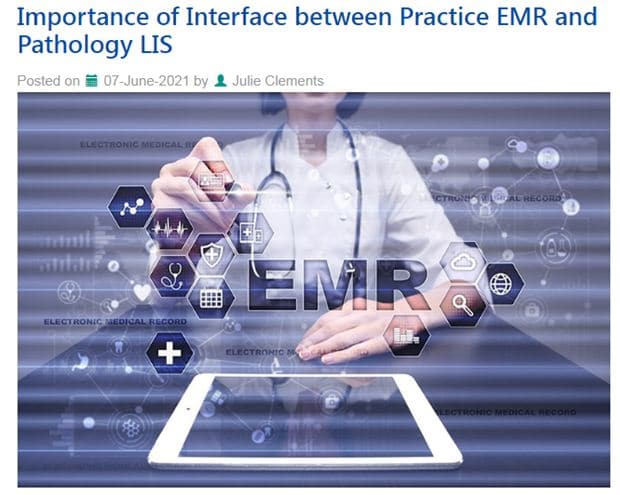Electronic health records have the potential to make health care more precise and preventive, and support retrieval of patient information to support clinical decision making. Medical transcription services ease the data entry burden on providers, allowing them to spend more time with their patients rather than in front of the computer. Such documentation support is especially useful for surgeons who need to take time to discuss treatment choices with patients, and after the decision is made, specifics of the procedure, as well as its risk, expected recovery, and care. Advance care planning (ACP) is an important communication topic between patients, their family, and their health care providers.

Advance care planning (ACP) helps patients prepare for current and future decisions about their medical treatment and place of care. The patient’s preferences about end-of-life care are expressed in an advance care directive – a legal document that comes into force if the patient is incapacitated or unable to speak for him/herself.
ACP involves making decisions about emergency treatments in the event of a life threatening illness, injury, or surgical complications. It is also recognized as a valuable tool for everyone, regardless of age or current health status. Decisions that come up during emergency treatment usually relate to cardiopulmonary resuscitation (CPR), ventilator use, dialysis, tube feeding, medically administered hydration, and comfort care.
However, even as ACP is widely accepted as a way to maintain patient self- determination, facilitate medical decision making, and promote better care at the end of life, a new study found that many patients do not have advance care directives in their medical records.
The study, published in the Journal of Internal Medicine, examined at EMRs of 400 patients who underwent preoperative evaluation. The researchers reported that about 71% of patients seen in preoperative testing clinics before surgery do not have an advance directive (AD) in place. In the event of surgical complications, this can result in patients’ families having to take difficult decisions about the kind of care their loved one receives. Importantly, ADs better align the care people receive in a crisis with their wishes and desires.
Healio summarized the findings of the researchers at the Regenstrief Institute, Indiana University Health and Indiana University School of Medicine as follows:
- only 30% of patients in their study had some form of AD documentation that spelled out the kind of emergency medical care they wanted
- only 16% had had ADs that were scanned into the EMR where a clinician could access it
- Of those with AD scanned into the EMR, only 11.8% had a surrogate decision maker and 11.5% had a living will
- People age 65 and older and patients with congestive heart failure were significantly more likely to have an AD scanned in their EMR
One of the researchers said that the study findings suggest that there is significant scope for improvement in advanced care planning in the clinical setting.
“When an AD is not available in cases of emergency, it creates a complex situation for the care providers and surrogate decision makers. Emotions are often high, and family members may have difficulty navigating those emotions to make the best decision for their loved ones,” she said.
The American Medical Association (AMA) recommends that physicians routinely engage their patients in ACP and provides the following directives on the matter:
- Encourage all patients to consider their values and perspectives on quality of life and document their goals for care if they faced a life-threatening illness or injury, including preferences for specific medical interventions.
- Patients need to identify a person who could make decisions on their behalf if their illness rendered them unable to do so, and make their views known to the designated person, and their family members and close friends.
- Physicians should be prepared to answer patients’ questions about ACP and refer them to additional resources for reference, if required.
- Patients should be educated about how ADs can help guide treatment decisions in collaboration with patients themselves when they have decision-making capacity, or with surrogates when they do not. The patient’s surrogate should be included in the discussion whenever possible.
- Notes from ACP discussions, including the patient values and preferences for treatment in an emergency, should be incorporated into the EMR. The patient should be advised to give a copy of the advance directive document or written designation of proxy to the surrogate and others so that it will be available when needed.
- As the patient’s goals, preferences, and choice of decision maker can change over time, physicians should periodically review these matters with the patient (and surrogate, whenever possible). The EMR should be updated with the changes.
Effective interactions between surgeons and patients require time. Medical transcription outsourcing can help providers focus on addressing patients’ concerns and expectations, clarify any misunderstandings they may have about specific medical conditions or interventions, and help them plan for care at the end of life.


